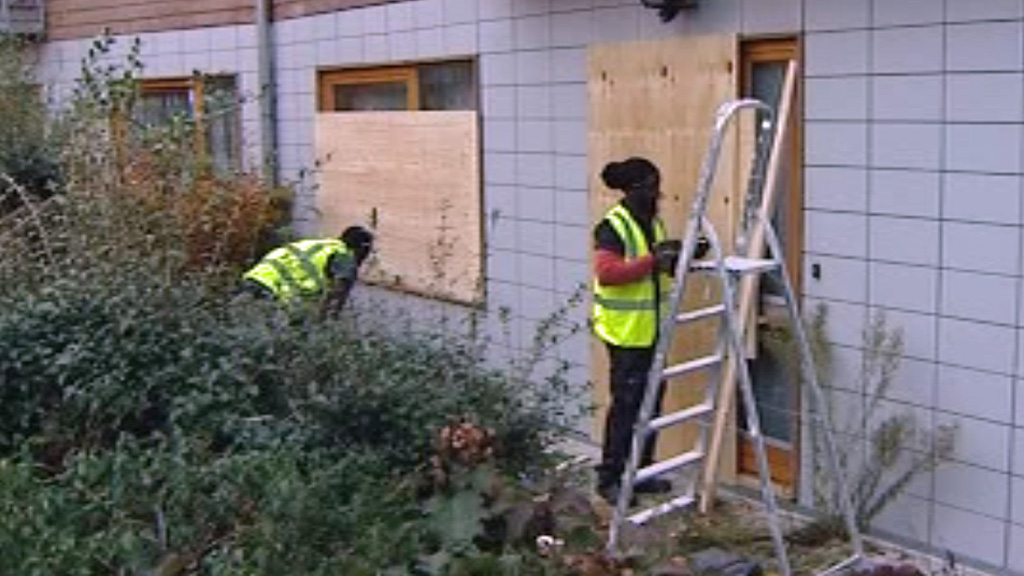‘Slave’ house couple ‘leaders of 1970s political cult’
The couple named as the accused pair in the Lambeth “slave house” case were leaders of a Maoist political group in south London described as a “cult” which went underground.
“Comrade Bala” and “Comrade Chanda” are the mysterious identities to emerge from the investigation surrounding three women allegedly held as slaves for 30 years in south London.
Their names weave through the radical political groups which operated in and around Brixton, south London, in the 1970s and 1980s.
Aravindan Balakrishnan – “Comrade Bala” – arrived in the UK in the 1960s from Malaysia and established himself as the leader of the Workers’ Institute Marxism Leninism Zedong Thought after being expelled from the Communist Party of England (Marxist-Leninist).
He ran a commune called the Mao Zedong Memorial Centre in Brixton, not far from the Lambeth address under investigation in the alleged slave case.
If one were to be brutally honest they were more of psychiatric interest than political interest.They had nothing to do with the mainstream leftwing and communist politics of the day. Robert Griffiths, Communist Party of Britain
“Maoist” thinking comes from the ideologies of Chinese political leader Mao Zedong and considered to be a revised form of Marxism and Leninism. Followers believe in the idea of constant revolution and that collectives of “peasants” will lead the overthrow of the state.
The group in Brixton was made up of Maoist students from Malaysia and Singapore, among other places, with an apparent focus on recruiting women, but with a male leader.
Robert Griffiths, general secretary of the Communist Party of Britain, describes the Maoist group as the “breakaway of a breakaway of a breakaway”.
He told Channel 4 News: “We know that they opened their centre in 1976. It closed in 1978, following the police raid in March.
“The group disappeared quite soon after that and there’s no real record of any political activity by the people involved in this commune.
“Really we’ve heard nothing about them, on the left in Britain, for decades.”
He added: “If one were to be brutally honest they were more of psychiatric interest than political interest.
“They had nothing to do with the mainstream leftwing and communist politics of the day.”
Comrade Chanda ‘nearly lost an eye’
Mr Balakrishnan’s wife, Chanda, is mentioned in an account of a battle with the police as the centre in Brixton was closed in March 1978.
A transcript, first published in November 1978, began: “Beloved Chairman Mao will live forever! Death to the two superpowers! Death to the British fascist state!”
The document claimed that “200 police” closed down the Mao Zedong Memorial Centre on Acre Lane, in Brixton, and that 14 people were arrested.
It added that “Comrade Chanda nearly lost her right eye” in the struggle with police.
It is believed that Comrade Bala also carried out “political work” in working class communities from the beginning of 1970 in Southall and Finsbury Park.
But by 1981 little was heard from the Workers’ Institute and it was said its members had gone “underground”.
A spokeswoman for London Metropolitan Police would not confirm or deny the names of Aravindan and Chanda Balakrishnan were linked to the current investigation. However, they revised the ages of the arrested couple to 73, for the man of Indian origin, and 67 for the woman, originally from Tanzania.

Peckford Place, the ‘eco’ house
The house at the centre of the slavery investigation, Peckford Place in Lambeth, was built during redevelopment of the area in the early 2000s.
The area, still known as Angell Town, was a concrete warren of flats and a hot spot for crime. It became so dangerous that taxi cabs refused to drive there at certain times of the day.
The real name of the street, containing the property now boarded up, is Boatemeh Way. The housing which existed here beforehand was part of Warwick House, a four-storey 1960s block.
Local residents worked closely with Lambeth Council to regenerate the block which became the project’s flagship energy efficient building – so much so that Channel 4 News filmed at the site in 2005.

However the two older women in the slavery case alleged they had been held captive for 30 years, which means the group of five must have lived elsewhere prior to 2005. Police have confirmed they are investigating a further 13 properties.
The three women were taken to safety on 25 October, after making a phone call to the Freedom Charity which then contacted the Met police human trafficking unit.
The 69-year-old is from Malaysia, the 57-year-old is Irish. It is thought the younger female, 30, has never lived freely in her life and did not attend school.
On Friday, police told reporters they were investigating “who had any freedom, what sort of freedom, under what conditions that freedom was allowed.”
Met police commander Steve Rodhouse said all three women had “suffered emotional and physical abuse” but that officers had spent a month gaining evidence and trust before the arrests on 21 November, as initially the group said they did not want to take action.
-
Latest news
-
‘Authentic Stupidity’: Ben Elton’s new show explores how idiotic human beings can be5m

-
Is Israel’s evacuation of Rafah the precursor to full scale invasion?3m

-
Eurovision: Non-binary artist wins for first time2m

-
Tens of thousands march in Georgian capital against ‘foreign agents’ bill2m

-
‘Russia’s number one goal is to get troops closer to Kharkiv,’ says Ukrainian security analyst4m

-




